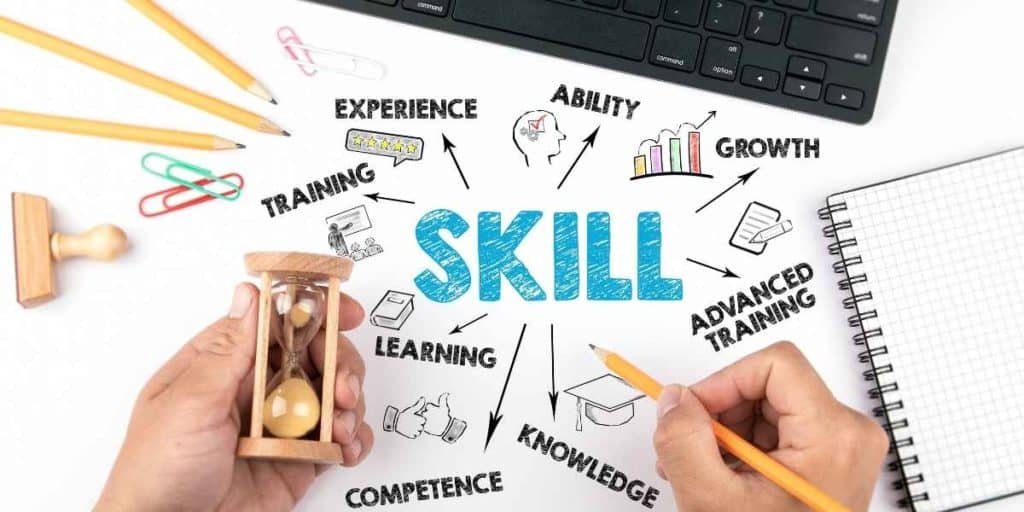Data analysts are high in demand in this era dominated by data. The increasingly popular job involves finding useful information within datasets so that businesses can use that information to optimize their business. But does this require programming knowledge?
Data analysts don’t need to be able to code as well as software engineers, but they must be able to write and execute simple scripts and use libraries to help them with their tasks. Programming is one of the skills expected of a data analyst, although it isn’t the most crucial one.
In this article, we will discuss this question further in greater detail. We will start by discussing what a data analyst exactly does before proceeding to see where programming can be useful. We will also be comparing the two most popular programming languages among data analysts.
Important Sidenote: We interviewed numerous data science professionals (data scientists, hiring managers, recruiters – you name it) and identified 6 proven steps to follow for becoming a data scientist. Read my article: ‘6 Proven Steps To Becoming a Data Scientist [Complete Guide] for in-depth findings and recommendations! – This is perhaps the most comprehensive article on the subject you will find on the internet!
Table of Contents
What Exactly Do Data Analysts Do?
Before we dive deeper into the question of whether or not data analysts need to code, we first need to be clear about what exactly data analysis is. Data analysis is a domain that finds patterns and useful information in raw datasets that businesses/organizations use to optimize their processes.

As a data analyst, generally speaking, there will be three tasks expected of you. Mind you; we’re not talking about all the skills you need to become a data analyst. We are simply talking about the actual process involved in data analysis.
- The first step is data preparation and mining. Data preparation is the task of preparing the dataset so that you can start analyzing it. Data mining is a different thing that involves extracting data from raw sources.
- Once you have prepared the dataset, the next step is data processing. This is where you actually look for patterns and helpful insights within the data. You may use various statistical and mathematical tools as well as assistance from modern techniques such as machine learning during this phase.
- Once you’re done with data processing, the third and final task is data visualization. This refers to the graphical representation of the information you have retrieved from the data so that they can be communicated over to the people funding the data analysis.
Of course, a data analyst needs a range of other skills to thrive in the industry. But these three form the core of any data analysis task.
How Necessary Is It for a Data Analyst to Know How to Code?
So now for the main question, just how important is it to know how to code as a data analyst. Well, not an awful lot. But you will be at a severe disadvantage if you can’t code at all.
Much of data analysis deals with finding patterns and solving problems. So a sound knowledge of the domain that one is involved in is much more valuable than programming skill. The key takeaway for you should be that data analysis is more closely related to business than it is with computer science or programming.
Having said that, most modern data analysts do place special emphasis on learning how to code. You don’t need to be able to code complex applications like software engineers. Much of the programming tasks you will be involved in will be using one or more of the myriad of data science/analysis libraries available. But every decent data analyst must be able to write scripts to automate some of their data analysis tasks.
So if you’re entering the job market without enough programming skills, you should know that you will be competing with people who at least know their way around a couple of languages. In order to stand a chance, you must learn at least one. If you’ve never coded before, Python can be a good starting language. Just a little bit of practice, and you can start implementing complex solutions in no time.
In the next section, we will see which languages are the most popular among data analysts.
What Programming Languages Should a Data Analyst Know?
There are several languages popular among data analysts. Python and R are the two most popular languages by far, and most serious data analysts know their way around both. Data analysts are also expected to know some SQL since much of their jobs will require them to navigate through databases.
Unlike Python, R is a language that was specifically created for data analysis. Python is a more versatile language that can be used to write scripts or implement complex models. R, on the other hand, is more suited for ad hoc data analysis. A good data analyst will be adept in both and will know which language to use when.
The main reason beginners in data analysis pick Python is that it is an incredibly easy language to learn. Thanks to its simplicity, you can begin implementing complex solutions right away once you are familiar with its basic syntaxes. Python is also faster in its computations compared to R. In fact; an R program can be incredibly slow unless it is well written. R, however, is unmatched in its visualization abilities.
Both of these languages have plenty of helpful data analysis libraries that can aid you in all the tasks within the domain.
Besides Python and R, two other programming languages popular among data analysts are Scala and Julia.
Must-Have Skills for a Data Analyst
Now that we have discussed the programming skills required of a data analyst, let us look at all the skills that make a complete data analyst. There are six distinct skills that a data analyst must have:

- Data preparation/cleaning: Data cleaning/preparation makes up almost 80% of a data analyst’s job. The data analyst needs to take in raw data and transform it into a data set that can be processed. This includes tasks like recognizing and removing outliers that could otherwise skew the results.
- Data analysis/exploration: This is the actual task of finding useful information within a data set. Data analysts use statistical modeling and machine learning to help identify useful patterns within a seemingly random data set.
- Domain expertise: This is one of the most important skills that data analysts must have. Unless they have a good working knowledge of the domain they’re working in, data analysts will have difficulty recognizing and extracting valuable information that could help the business/organization they’re working for.
- Data visualization: This is the task of representing the information extracted from data processing into histograms and other graphical representations so that business people can understand them without technical knowledge.
- Presentation/communication: This is another crucial skill for a data analyst. Much of their job will consist of interacting with business people or people without much technical knowledge. A good communication skill is absolutely crucial for a data analyst to communicate their findings over to their bosses.
- Problem solving: Data analysts are problem solvers. Often they are given predefined questions and problems by their bosses that they need to find the answer/solution to by studying the available data set. Hence, having a problem solver’s mindset is an absolute must for a data analyst.
Author’s Recommendations: Top Data Science Resources To Consider
Before concluding this article, I wanted to share few top data science resources that I have personally vetted for you. I am confident that you can greatly benefit in your data science journey by considering one or more of these resources.
- DataCamp: If you are a beginner focused towards building the foundational skills in data science, there is no better platform than DataCamp. Under one membership umbrella, DataCamp gives you access to 335+ data science courses. There is absolutely no other platform that comes anywhere close to this. Hence, if building foundational data science skills is your goal: Click Here to Sign Up For DataCamp Today!
- IBM Data Science Professional Certificate: If you are looking for a data science credential that has strong industry recognition but does not involve too heavy of an effort: Click Here To Enroll Into The IBM Data Science Professional Certificate Program Today! (To learn more: Check out my full review of this certificate program here)
- MITx MicroMasters Program in Data Science: If you are at a more advanced stage in your data science journey and looking to take your skills to the next level, there is no Non-Degree program better than MIT MicroMasters. Click Here To Enroll Into The MIT MicroMasters Program Today! (To learn more: Check out my full review of the MIT MicroMasters program here)
- Roadmap To Becoming a Data Scientist: If you have decided to become a data science professional but not fully sure how to get started: read my article – 6 Proven Ways To Becoming a Data Scientist. In this article, I share my findings from interviewing 100+ data science professionals at top companies (including – Google, Meta, Amazon, etc.) and give you a full roadmap to becoming a data scientist.
Conclusion
Data analysis doesn’t require complex programming skills as other domains like software engineering. In fact, a data analyst’s work is often more closely related to the domain of business than it is with tech.
Having said this, a fair amount of programming skill is necessary for a modern data analyst. A data analyst must be able to write and execute scripts and also handle other data analysis libraries. Good working knowledge of Python, R and SQL can help data analysts succeed in their careers.
BEFORE YOU GO: Don’t forget to check out my latest article – 6 Proven Steps To Becoming a Data Scientist [Complete Guide]. We interviewed numerous data science professionals (data scientists, hiring managers, recruiters – you name it) and created this comprehensive guide to help you land that perfect data science job.
Affiliate Disclosure: We participate in several affiliate programs and may be compensated if you make a purchase using our referral link, at no additional cost to you. You can, however, trust the integrity of our recommendation. Affiliate programs exist even for products that we are not recommending. We only choose to recommend you the products that we actually believe in.
Recent Posts
Data science has been a buzzword in recent years, and with the rapid advancements in artificial intelligence (AI) technologies, many wonder if data science as a field will be replaced by AI. As you...
In the world of technology, there's always something new and exciting grabbing our attention. Data science and analytics, in particular, have exploded onto the scene, with many professionals flocking...
